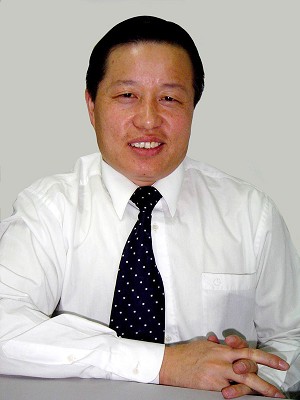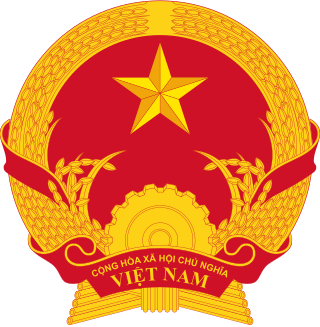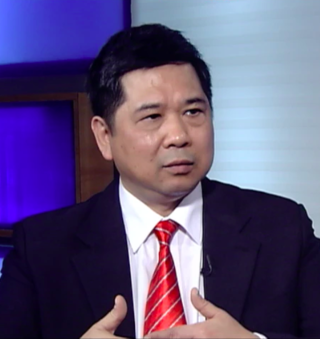Related Research Articles

Re-education through labor, abbreviated laojiao was a system of administrative detention on mainland China. Active from 1957 to 2013, the system was used to detain persons who were accused of committing minor crimes such as petty theft, prostitution, and trafficking of illegal drugs, as well as political dissidents, petitioners, and Falun Gong followers. It was separated from the much larger laogai system of prison labor camps.
Human rights in China are periodically reviewed by the United Nations Human Rights Committee (UNHRC), on which the Chinese Communist Party (CCP), government of the People's Republic of China (PRC) and various foreign governments and human rights organizations have often disagreed. CCP and PRC authorities, their supporters, and other proponents claim that existing policies and enforcement measures are sufficient to guard against human rights abuses. However, other countries and their authorities, international non-governmental organizations (NGOs) including Human Rights in China and Amnesty International, and citizens, lawyers, and dissidents inside the country, state that the authorities in mainland China regularly sanction or organize such abuses.

Evin Prison is a prison located in the Evin neighborhood of Tehran, Iran. The prison has been the primary site for the housing of Iran's political prisoners since 1972, before and after the Islamic Revolution, in a purpose-built wing nicknamed "Evin University" due to the number of students and intellectuals housed there. Evin Prison has been accused of committing "serious human rights abuses" against its political dissidents and critics of the government.

Human rights in Saudi Arabia are a topic of concern and controversy. The Saudi government, which mandates both Muslim and non-Muslim observance of Islamic law under the absolute rule of the House of Saud, has been accused of and denounced by various international organizations and governments for violating human rights within the country. The authoritarian regime ruling the Kingdom of Saudi Arabia is consistently ranked among the "worst of the worst" in Freedom House's annual survey of political and civil rights.
Huang Qi is a Chinese webmaster and human rights activist. He is the co-founder of Tianwang Center for Missing Persons, along with his wife Zeng Li. Initially the mission of the organization was to help counter human trafficking that had become a swelling problem in the late 1990s, but later it was expanded to include campaign against human rights abuse. Huang is also the owner and webmaster of 64tianwang.com, a website originally intended to release news about people who had disappeared in the People's Republic of China.
Torture, the infliction of severe physical or psychological pain upon an individual to extract information or a confession, or as an illicit extrajudicial punishment, is prohibited by international law and is illegal in most countries. However, it is still used by many governments. The subject of this article is the use of torture since the adoption of the 1948 Universal Declaration of Human Rights (UDHR), which prohibited it.
He Depu is a dissident in the People's Republic of China.
Shi Tao is a Chinese journalist, writer and poet, who in 2005 was sentenced to 10 years in prison for releasing a document of the Communist Party to an overseas Chinese democracy site. Yahoo! China was later discovered to have facilitated his arrest by providing his personal details to the Chinese government. Yahoo! was subsequently rebuked by a panel of the U.S. Congress, settled a lawsuit by Shi's family out of court, and pledged to reform its practices.

Gao Zhisheng is a Chinese human rights attorney and dissident known for defending activists and religious minorities and documenting human rights abuses in China. Because of his work, Zhisheng has been disbarred and detained by the Chinese government several times, and severely tortured. He last disappeared in February 2009 and was unofficially detained until December 2011, when it was announced that he has now been imprisoned for three years. His commitment to defending his clients is influenced by his Christian beliefs and their tenets on morality and compassion.
According to human rights organisations, the government of the UAE violates a number of fundamental human rights. The UAE does not have democratically elected institutions and citizens do not have the right to change their government or to form political parties. Activists and academics who criticize the regime are detained and imprisoned, and their families are often harassed by the state security apparatus. There are reports of forced disappearances in the UAE; many foreign nationals and Emirati citizens have been abducted by the UAE government and illegally detained and tortured in undisclosed locations. In numerous instances, the UAE government has tortured people in custody , and has denied their citizens the right to a speedy trial and access to counsel during official investigations.

Human rights in Vietnam are among the poorest in the world, as considered by various domestic and international academics, dissidents and non-governmental organizations (NGOs) such as Amnesty International (AI), Human Rights Watch (HRW), and the United Nations High Commissioner for Human Rights (OHCHR).

Hu Jia is a Chinese civil rights activist and noted critic of Chinese Communist Party. His work has focused on the Chinese democracy movement, Chinese environmentalist movement, and HIV/AIDS in the People's Republic of China. Hu is the director of June Fourth Heritage & Culture Association, and he has been involved with AIDS advocacy as the executive director of the Beijing Aizhixing Institute of Health Education and as one of the founders of the non-governmental organization Loving Source. He has also been involved in work to protect the endangered Tibetan antelope. For his activism, Hu has received awards from several European bodies, such as the Paris City Council and the European Parliament, which awarded the Sakharov Prize for Freedom of Thought to him in December 2008.

Chen Guangcheng is a Chinese civil rights activist who has worked on human rights issues in rural areas of the People's Republic of China. Blind from an early age and self-taught in the law, Chen is frequently described as a "barefoot lawyer" who advocates for women's rights, land rights, and the welfare of the poor.

The Saudi Mabahith, also spelled Mabaheth, is the secret police agency of the Presidency of State Security in Saudi Arabia, and deals with domestic security and counter-intelligence.
Wang Xiaoning is a Chinese engineer and dissident from Shenyang who was arrested by authorities of the People's Republic of China for publishing pro-democracy material online using his Yahoo! account. In September 2003, he was sentenced to ten years in prison.
Internet censorship in Vietnam prevents access to websites critical of the Vietnamese government, expatriate political parties, and international human rights organizations, among others or anything the Vietnamese government does not agree with. Online police reportedly monitor Internet cafes and cyber dissidents have been imprisoned. Vietnam regulates its citizens' Internet access using both legal and technical means. The government's efforts to regulate, monitor, and provide oversight regarding Internet use has been referred to as a "Bamboo Firewall". However, citizens can usually view, comment and express their opinions civilly on the internet, as long as it does not evoke anti-government movement, political coup and disrupt the social stability of the country.
The main blasphemy law in Egypt is Article 98(f) of the Egyptian Penal Code. It penalizes: "whoever exploits and uses the religion in advocating and propagating by talk or in writing, or by any other method, extremist thoughts with the aim of instigating sedition and division or disdaining and contempting any of the heavenly religions or the sects belonging thereto, or prejudicing national unity or social peace."
Liu Xianbin, from Suining, Sichuan province, People's Republic of China, is a human rights activist, China Democracy Party organizer, writer and signer of Charter 08.

Cù Huy Hà Vũ is a Vietnamese legal scholar. A government critic and a dissident, he was taken into custody in 2010 on charges of "propaganda against the state" and "plotting to overthrow the communist government of Vietnam". On 4 April 2011, Vu was sentenced to 7 years in prison for "spreading anti-state propaganda", drawing protests from human rights groups, the Roman Catholic Church, and the international community.
The 2011 crackdown on dissidents in China refers to the arrest of dozens of mainland Chinese rights lawyers, activists and grassroots agitators in a response to the 2011 Chinese pro-democracy protests. Since the protests, at least 54 Chinese activists have been arrested or detained by authorities in the biggest crackdown on dissent since the 1989 Tiananmen Square protests and massacre. Since the start of the protests in mid-February 2011, human rights groups have claimed that more than 54 people have been arrested by authorities, some of whom have been charged with crimes. Among those arrested are bloggers who criticise the government such as Ai Weiwei, lawyers who pursue cases against the government, and human rights activists.
References
- ↑ Cai, Jiquan. "Prisoner Profile: Du Daobin" (PDF). Human Rights in China . Archived (PDF) from the original on 5 March 2014. Retrieved 1 March 2014.
- ↑ "Who is Du Daobin?". Ward & Ward. 16 August 2011. Archived from the original on 8 March 2014. Retrieved 1 March 2014.
- 1 2 3 Mudie, Luisetta. "Dissident Jailed Ahead of Olympics". Radio Free Asia. Archived from the original on 2008-09-04. Retrieved 2008-07-21.
- ↑ "Chinese Writer Du Daobin Re-Arrested as Crackdown Continues". PEN American Center. 21 July 2008. Archived from the original on 24 September 2015. Retrieved 1 March 2014.
- ↑ Asher, Moses (16 August 2011). "Cisco Sued By Chinese Political Prisoners Over 'Golden Shield'". Sydney Morning Herald . Archived from the original on 30 August 2011. Retrieved 19 August 2011.
- ↑ Tennant, Don. "Second Lawsuit Accuses Cisco of Enabling China to Oppress Citizens". www.itbusinessedge.com. www.itbusinessedge.com. Archived from the original on August 19, 2011. Retrieved June 9, 2011.
- ↑ Chandler, Mark. "Cisco Supports Freedom of Expression, an Open Internet and Human Rights". Cisco. Cisco. Archived from the original on June 10, 2011. Retrieved June 6, 2011.
- ↑ Ward, Dan. "Du Daobin interrogated by Ministry of Public Security". Laogai Research Foundation . Archived from the original on August 3, 2011. Retrieved August 3, 2011.
- ↑ Cindy Cohn; Rainey Reitman (27 February 2014). "Maryland Court Dismisses Landmark Case That Sought to Hold Cisco Responsible for Violating Human Rights". Deeplinks Blog. Archived from the original on 28 February 2014. Retrieved 1 March 2014.